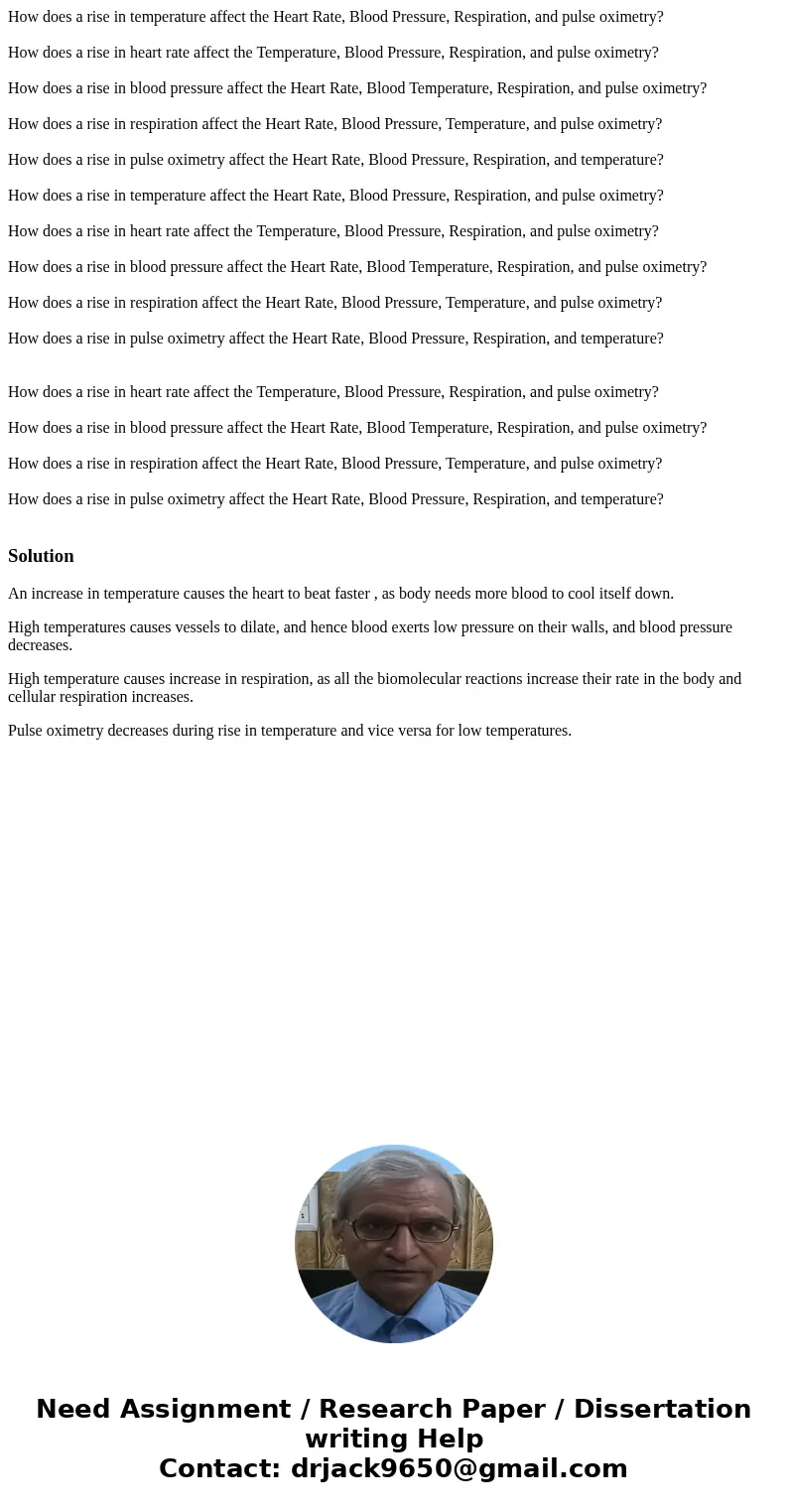How does a rise in temperature affect the Heart Rate Blood P
How does a rise in temperature affect the Heart Rate, Blood Pressure, Respiration, and pulse oximetry?
How does a rise in heart rate affect the Temperature, Blood Pressure, Respiration, and pulse oximetry?
How does a rise in blood pressure affect the Heart Rate, Blood Temperature, Respiration, and pulse oximetry?
How does a rise in respiration affect the Heart Rate, Blood Pressure, Temperature, and pulse oximetry?
How does a rise in pulse oximetry affect the Heart Rate, Blood Pressure, Respiration, and temperature?
How does a rise in temperature affect the Heart Rate, Blood Pressure, Respiration, and pulse oximetry?
How does a rise in heart rate affect the Temperature, Blood Pressure, Respiration, and pulse oximetry?
How does a rise in blood pressure affect the Heart Rate, Blood Temperature, Respiration, and pulse oximetry?
How does a rise in respiration affect the Heart Rate, Blood Pressure, Temperature, and pulse oximetry?
How does a rise in pulse oximetry affect the Heart Rate, Blood Pressure, Respiration, and temperature?
How does a rise in heart rate affect the Temperature, Blood Pressure, Respiration, and pulse oximetry?
How does a rise in blood pressure affect the Heart Rate, Blood Temperature, Respiration, and pulse oximetry?
How does a rise in respiration affect the Heart Rate, Blood Pressure, Temperature, and pulse oximetry?
How does a rise in pulse oximetry affect the Heart Rate, Blood Pressure, Respiration, and temperature?
Solution
An increase in temperature causes the heart to beat faster , as body needs more blood to cool itself down.
High temperatures causes vessels to dilate, and hence blood exerts low pressure on their walls, and blood pressure decreases.
High temperature causes increase in respiration, as all the biomolecular reactions increase their rate in the body and cellular respiration increases.
Pulse oximetry decreases during rise in temperature and vice versa for low temperatures.

 Homework Sourse
Homework Sourse